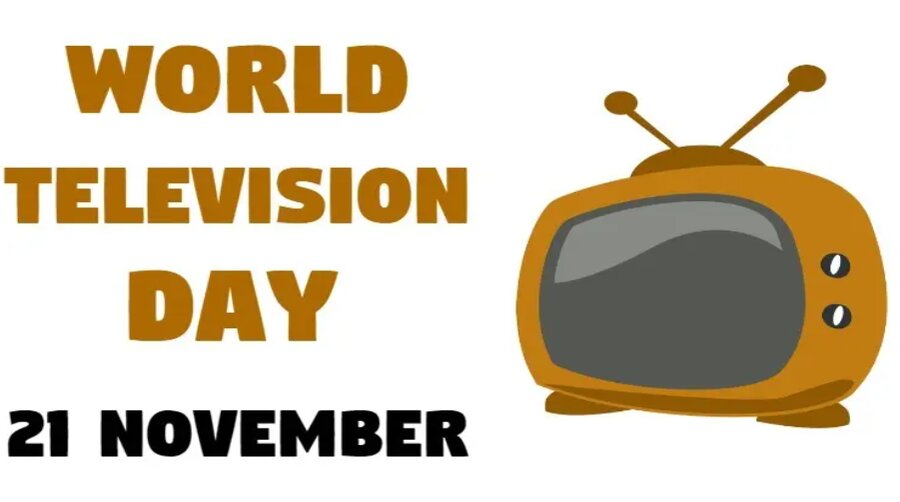World Television Day: Television has come a long way since its invention in the late 19th century. Today, it is a crucial part of our daily lives, serving as a source of entertainment, information, and education.
On November 21st, the world celebrates World Television Day, a day dedicated to acknowledging the significant role that television plays in our lives. In this article, we’ll explore the history and evolution of television and its impact on society.
The Evolution of Television (World Television Day)
Television has undergone significant changes since its invention. The first television broadcasts were in black and white and only transmitted images, without sound. Over the years, color television was introduced, followed by cable television and satellite television, which expanded the number of channels available to viewers.
The introduction of digital television in the 1990s brought even more improvements, including better picture and sound quality and the ability to transmit data and interact with the viewer.
The Impact of Television on Society
Television has had a profound impact on society, influencing culture, politics, and the way we consume information. In the early days of television, it served as a source of entertainment and news.
As it evolved, television has become a powerful tool for education, providing access to information and knowledge to people who might otherwise not have it.
Television has also played a crucial role in shaping public opinion and bringing attention to important social and political issues.
The Advantages of Television
Television has many advantages that make it a valuable tool for both individuals and society as a whole. For example, television provides a source of entertainment and relaxation after a long day. It is also a great way to stay informed about current events, both locally and globally.
With the help of television, people can learn about different cultures, customs, and lifestyles, fostering greater understanding and tolerance between different groups.
In addition, television is an important tool for education, providing access to a wide range of educational programming, including documentaries, educational shows, and children’s programming.
The Challenges of Television
Despite its many benefits, television also has its challenges. One of the biggest challenges is the amount of content that is inappropriate or unsuitable for children.
With the increasing number of channels available, it is becoming increasingly difficult to control the content that children are exposed to. Additionally, television can be addictive and can negatively impact physical and mental health, leading to issues such as sedentary behavior, sleep problems, and stress.
The Role of Television in Shaping Public Opinion
Television plays a significant role in shaping public opinion. With its ability to reach a large audience, television has the power to influence the way people think and feel about a particular issue or topic.
News programs, in particular, play a crucial role in shaping public opinion by reporting on current events and issues, offering analysis and commentary, and setting the agenda for public discourse.
Television has also been used as a tool for propaganda and manipulation, with governments and organizations using television to promote their own agendas and influence public opinion.
While the power of television to shape public opinion can be used for good or ill, it is important to be critical and informed consumers of the information we receive through television and other media.
The Role of Television in Spreading Awareness
Television also plays a crucial role in spreading awareness about important social, political, and environmental issues. Through documentaries, news programs, and other forms of programming, television has the ability to bring attention to issues that might otherwise go unnoticed.
By raising awareness about these issues, television can inspire people to take action and make a positive impact on the world.
Television has been instrumental in raising awareness about environmental issues, such as climate change, pollution, and the destruction of wildlife habitats. It has also played a crucial role in spreading awareness about social issues, such as poverty, inequality, and human rights abuses.
Through its ability to reach a large audience and bring attention to these issues, television has the power to create change and make a positive impact on the world.
Conclusion
In conclusion, World Television Day serves as a reminder of the power of television as a tool for shaping public opinion and spreading awareness. While it has its challenges, television remains an important tool for educating and informing the public, and for inspiring positive change.
Whether you’re watching the news, a documentary, or your favorite show, television has the ability to entertain, inform, and inspire us all. As responsible consumers of media, it is up to us to use this tool wisely and make a positive impact on the world.
READ MORE
- Kalpana Chawla: The Trailblazer of Indian Women in Space
- Amazon: A Pioneering Force in the E-commerce Industry
- Google: The World’s Most Popular Search Engine
- टेलीविजन का इतिहास भारत के संदर्भ में
- न्यू मीडिया(NEW MEDIA)की अवधारणा
- Radio का इतिहास और विकास यात्रा

